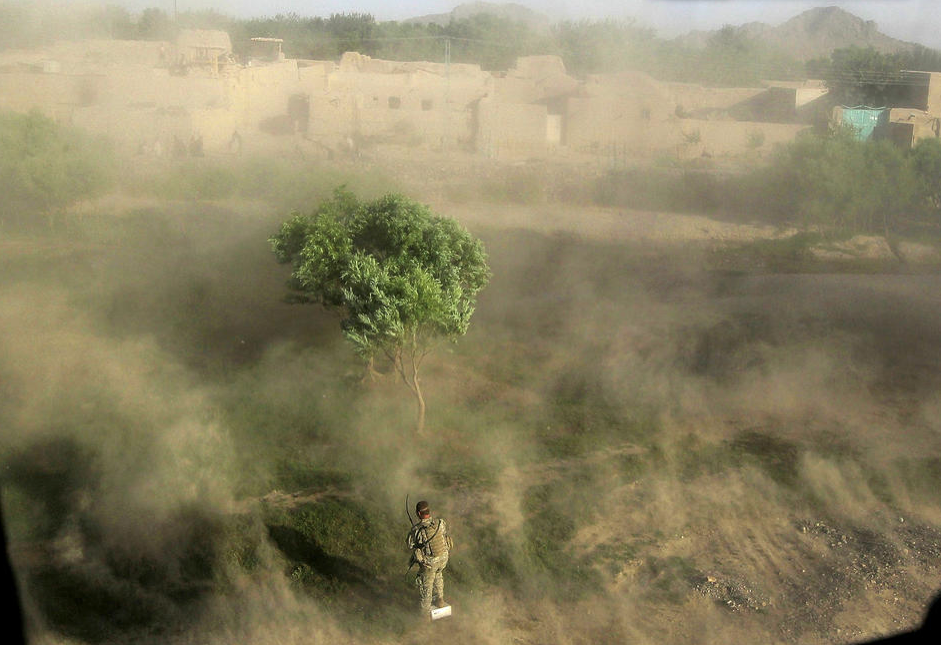The release of the “Afghan War Diaries” has been meet with expressions of outrage from both those who oppose the U.S. military occupation of Afghanistan as well as the administration that must now lay claim to the war as its own, but truth to tell, very little has thus far been revealed that we didn’t already know … or at least could have reasonably surmised from the available evidence.
Although it began in the shadow of our occupation in Iraq, our presence in Afghanistan now marks the single longest military expedition in US history—bar none: World War I, World War II, Korea, Vietnam … you name it. Is it a surprise, in this context, that hundreds (if not thousands) of civilians have been killed or wounded under the sign of “collateral damage”? Or that “friendly fire” has taken the lives of both US troops and its allies? Or that there are special black-ops units that operate under “dubious circumstances” with “capture/kill” lists? Or that the microchip technology that was supposed to provide us with a “bloodless victory” has turned out to be less effective than we imagined? Or that drone missions being executed by private contractors sitting safely before computer monitors in remote locations like Nevada are actually putting troops in the field at greater rather than lesser danger when they fail and have to be retrieved before the enemy finds them? Or that the Afghani military is underpaid and unreliable? Or—revelation of revelations—the US military has misled the public regarding the sophistication of the weaponry being employed against us by the Taliban, such as the use of heat seeking missiles to bring down helicopters? Or that Pakistan is not a trustworthy ally? And on and on and on.
The fact of the matter is that we have been shown evidence of virtually every one of these concerns over the past, long, ten years and we have chosen not to see them. Or perhaps the problem is that the reports of such incidents have been fragmented and piecemeal, and thus easily mitigated as “accidents” animated by human or technological error (take your choice), or rationalized as the “necessary and tragic” cost of a war fought to preserve our freedom. Like the soldier in the photograph above, caught in the rotor wash of a MEDEVAC helicopter and thus incapable of seeing the landscape that is directly in front of him, perhaps we have been caught in the swirl of government and mass media reports—too often indistinguishable from one another—to the point of not seeing (or trusting) what is directly before our eyes: a failed war that daily costs us ever more in dollars and human lives with no end or reversal of fortune in sight.
Eventually, of course, the dust will settle. Perhaps this process has begun with the collation of this information in the Afghan War Diaries. It now remains for us to actually see beyond the fog of war … and to act appropriately.
Photo Credit: Justin Sullivan/Getty Images
Cross-posted at BAGnewsNotes.

I believe military and intelligence services’ secrecy should be maintained and guarded. OTOH, it has been the height of stupidity, after all the experience of Vietnam and Iraq, to expect that a democratic and open society will support and sustain a prolonged and costly war which does not address core national interests.
[…] This post was mentioned on Twitter by Nocaptionneeded, Nocaptionneeded. Nocaptionneeded said: The Fog of War, Rediva (http://bit.ly/93bECY) […]
Among other things, WikiLeaks paints a picture of the precarious nature of US bases with the example of how one base called Camp Keating almost got overrun. Surprised? We’re not. We spent nearly a year off and on at a small outpost called Restrepo. The soldiers we were with often talked about the possibility of a catastrophic attack, and I was with US forces when their lines were overrun. The insurgents stripped weapons and ammunition from a dead American soldier and escaped. Two days later they nearly dragged off a wounded soldier alive. If you want another insight into the war which isn’t fragmented by the media or made piecemeal, then watch our movie Restrepo to see for yourself – http://www.restrepothemovie.com
[…] even get a rise out of folk. so clearly, shoot the guy who leaked the documents. jesus. edit: http://www.nocaptionneeded.com/?p=6255 what is said in this blog post is also the case. __________________ a gramophone its corrugated […]